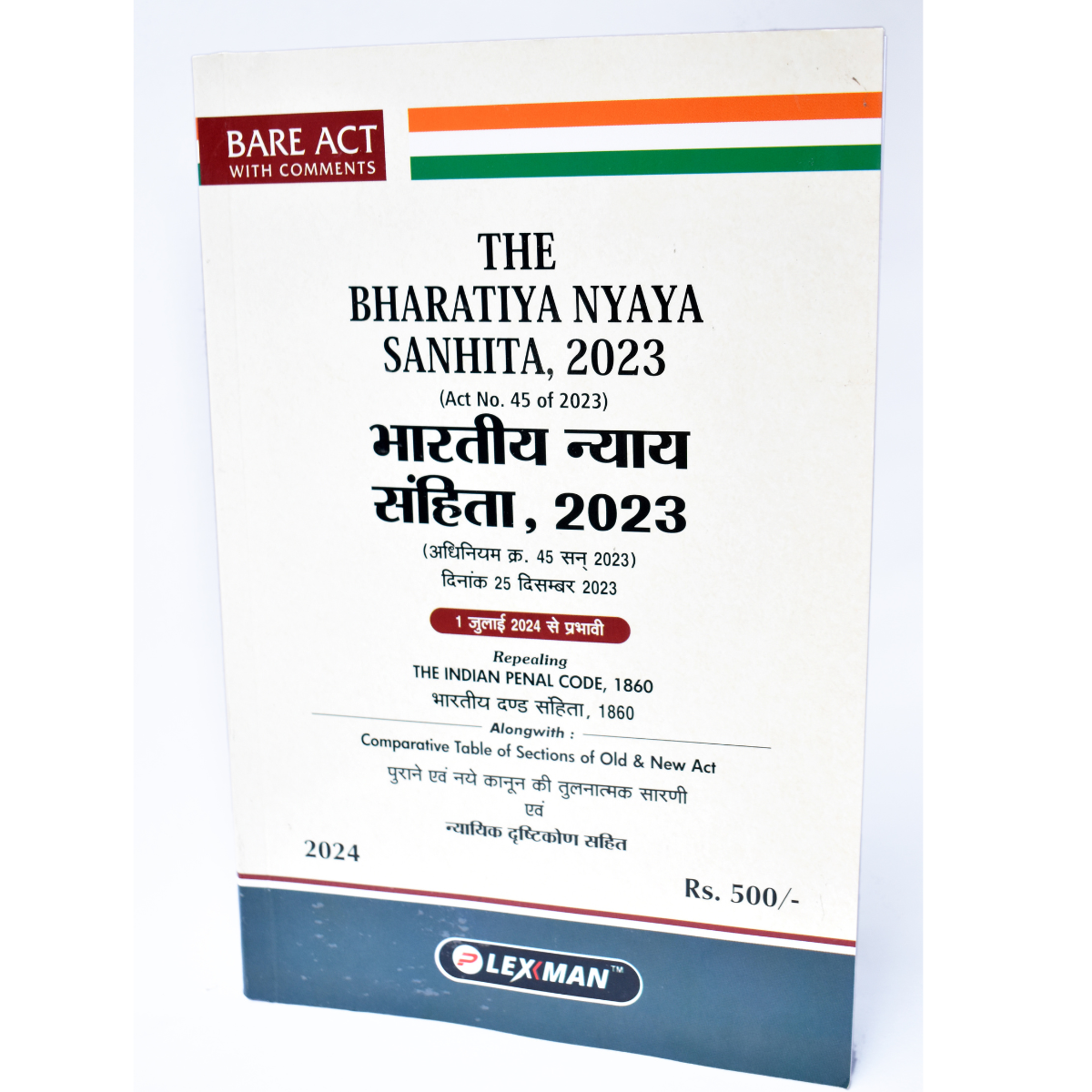





Bharatiya Nyaya Sanhita" delves into the intricacies of the Indian legal system, exploring its evolution, key principles, and contemporary challenges. It serves as a comprehensive guide to understanding the judicial framework that shapes modern India.
Historical Evolution: Explores the evolution of Indian jurisprudence from ancient texts to modern legal systems.
Foundational Principles: Highlights key principles of Indian law such as justice (dharma), equity (nyaya), and the rule of law (vidhi).
Judicial Structure: Provides an overview of the hierarchical structure of the Indian judiciary from lower courts to the Supreme Court.
Landmark Cases: Discusses significant legal cases that have shaped Indian legal interpretations and constitutional principles.
Contemporary Challenges: Addresses current issues in the Indian legal system including judicial delays, access to justice, and legal reforms.
Historical Context: The book traces the historical development of Indian jurisprudence, from ancient legal codes like Manusmriti to the establishment of the modern judicial system under British colonial rule.
Key Principles: It elucidates the foundational principles of Indian law, including concepts of justice (dharma), equity (nyaya), and the rule of law (vidhi), which underpin the legal framework of the country.
Structure of the Legal System: The narrative explores the hierarchical structure of the Indian judiciary, from the lower courts to the High Courts and the Supreme Court, highlighting their roles and jurisdiction.
Landmark Cases: It discusses landmark legal cases that have shaped Indian jurisprudence and influenced interpretations of the Constitution, civil, criminal, and administrative laws.
Contemporary Issues: The book addresses contemporary challenges faced by the Indian legal system, such as judicial delays, access to justice, legal reforms, and the impact of globalization on Indian laws.
Role of Legal Professionals: It examines the roles and responsibilities of judges, lawyers, and legal scholars in upholding justice and interpreting the law within the Indian context.
Social Justice and Rights: The narrative delves into the legal protections afforded to marginalized communities, emphasizing constitutional guarantees of equality, freedom, and social justice.
Legal Education and Ethics: The book also touches upon legal education, professional ethics, and the evolving role of legal professionals in fostering a just and equitable society.
Political and Legal Framework: It explores the interaction between the political system and the judiciary, examining issues of judicial independence, accountability, and the separation of powers.
Future Prospects: Concluding with a forward-looking perspective, the book discusses potential reforms and advancements needed to strengthen the Indian legal system for the future.